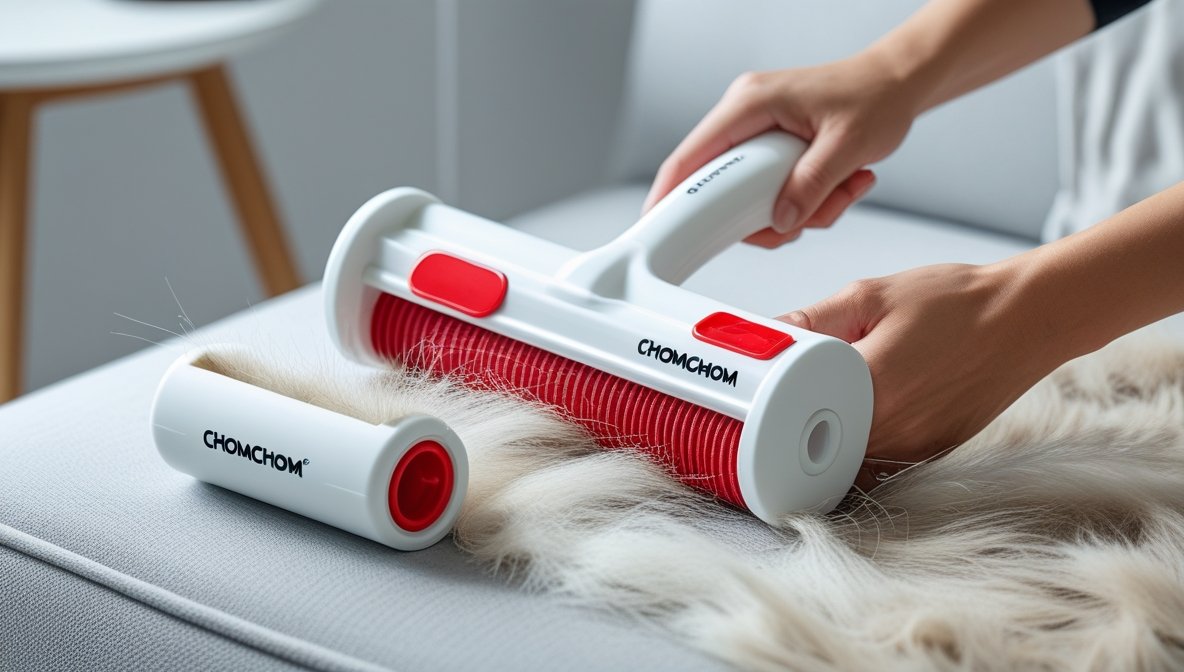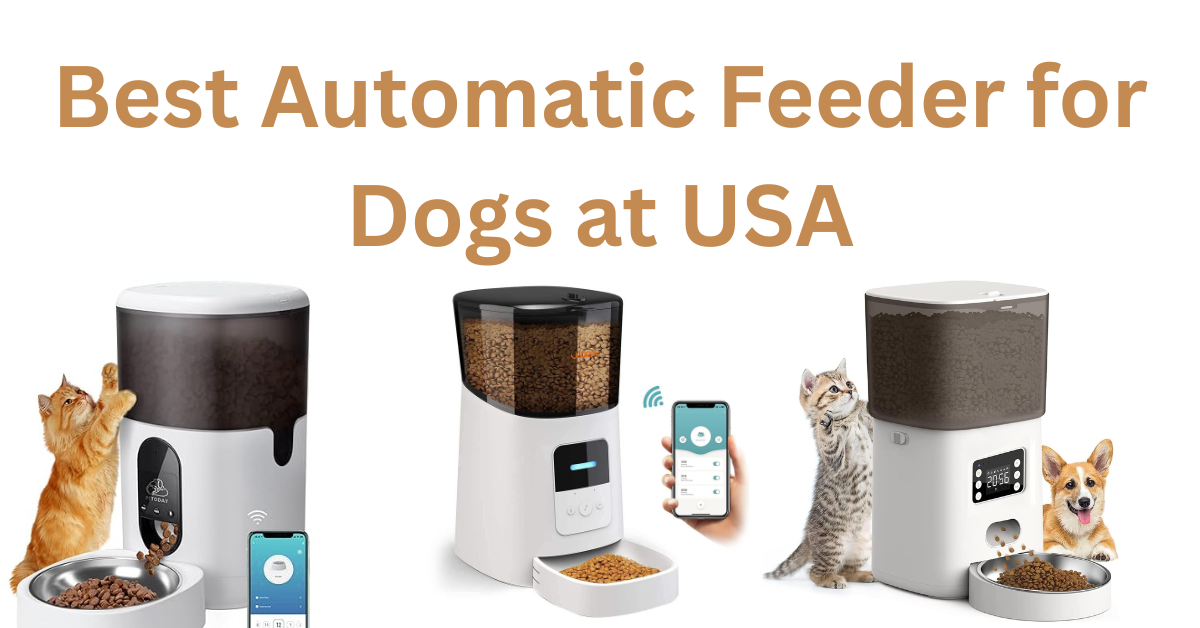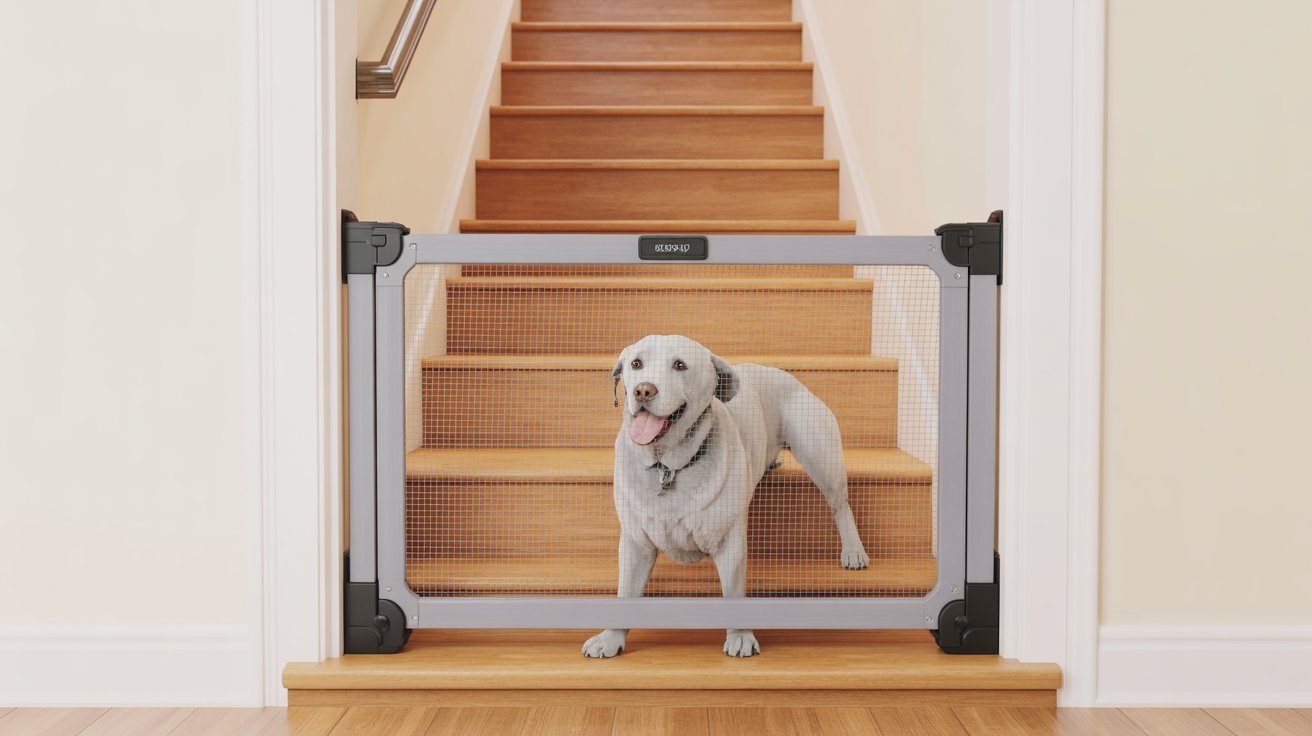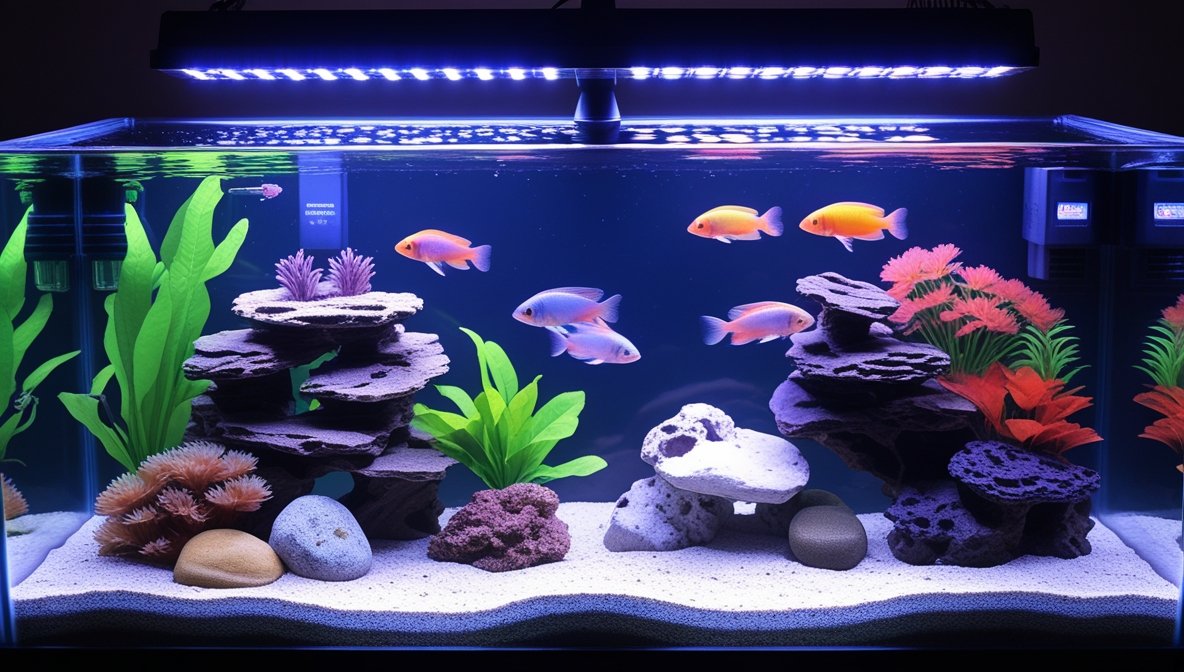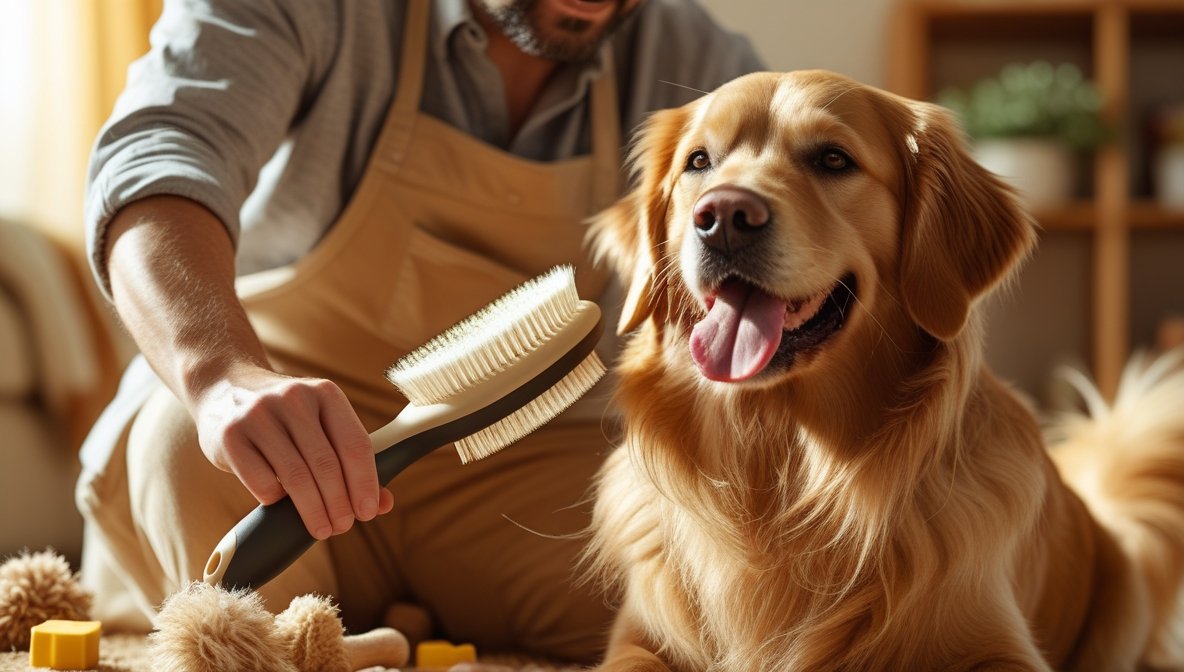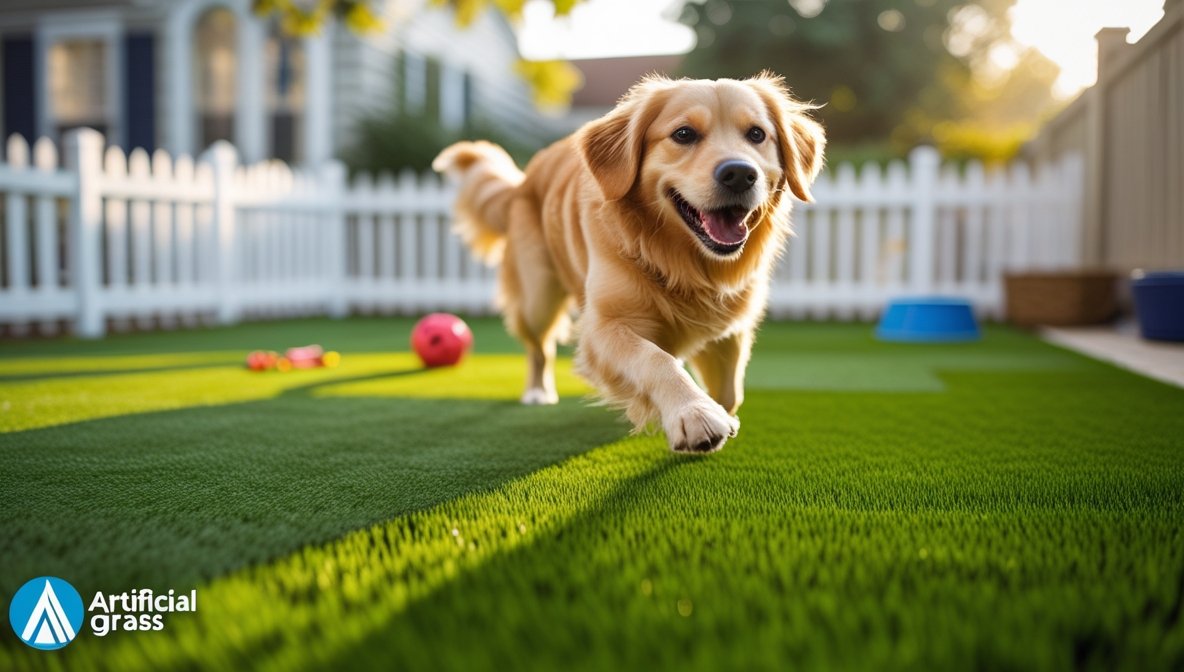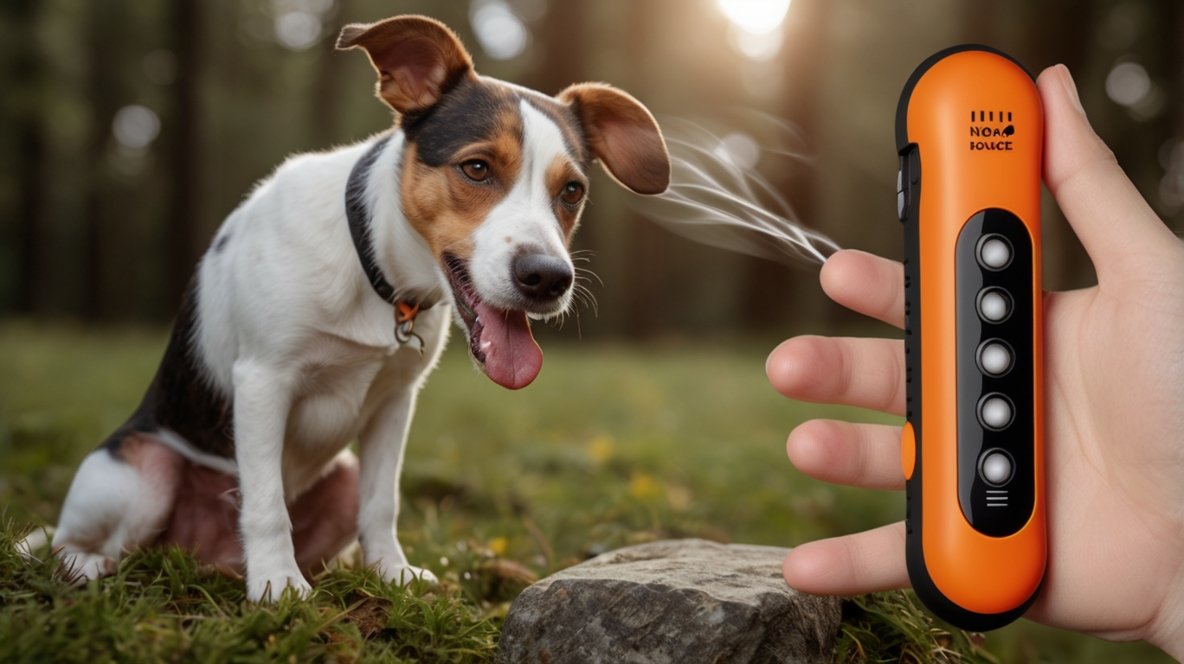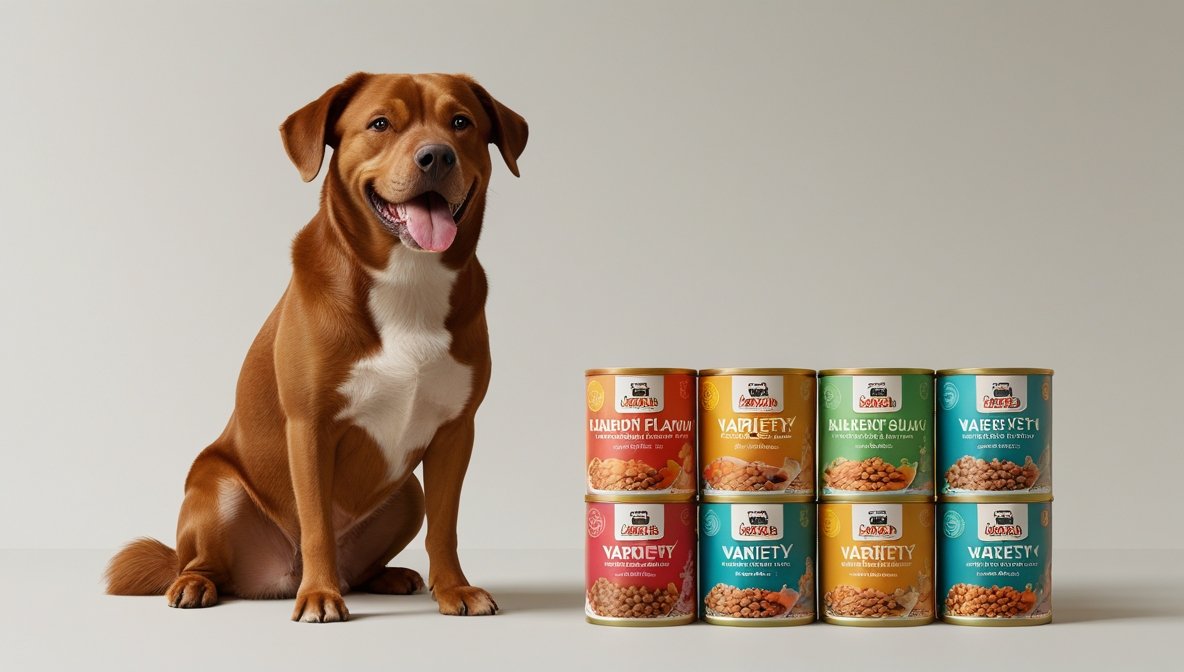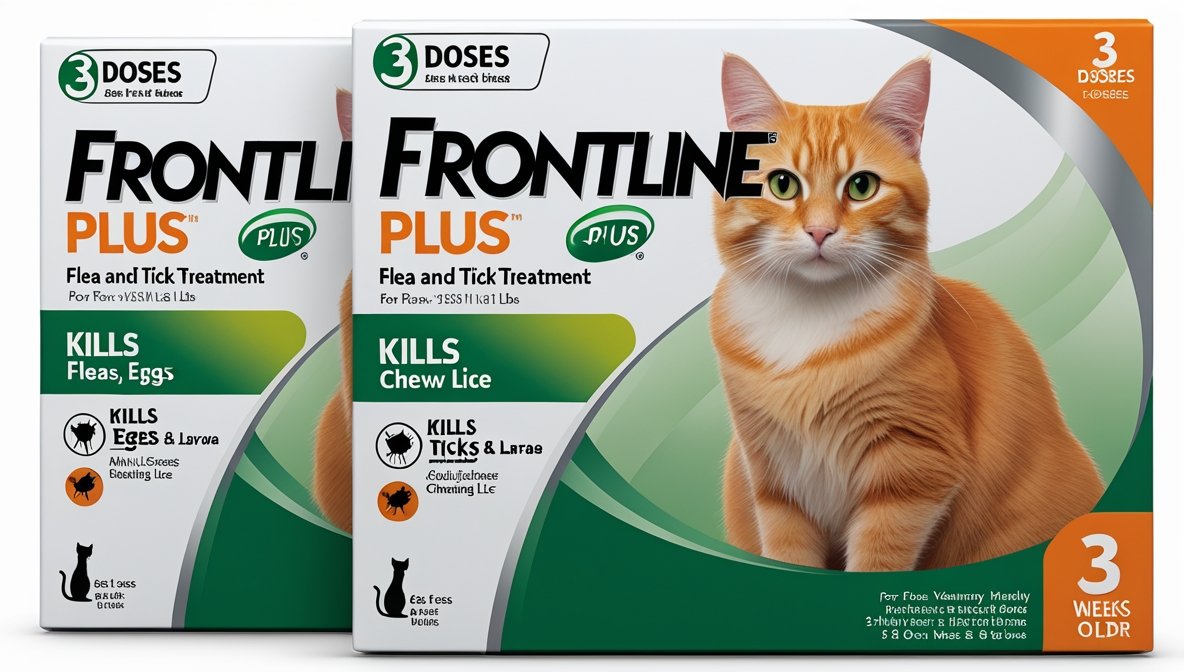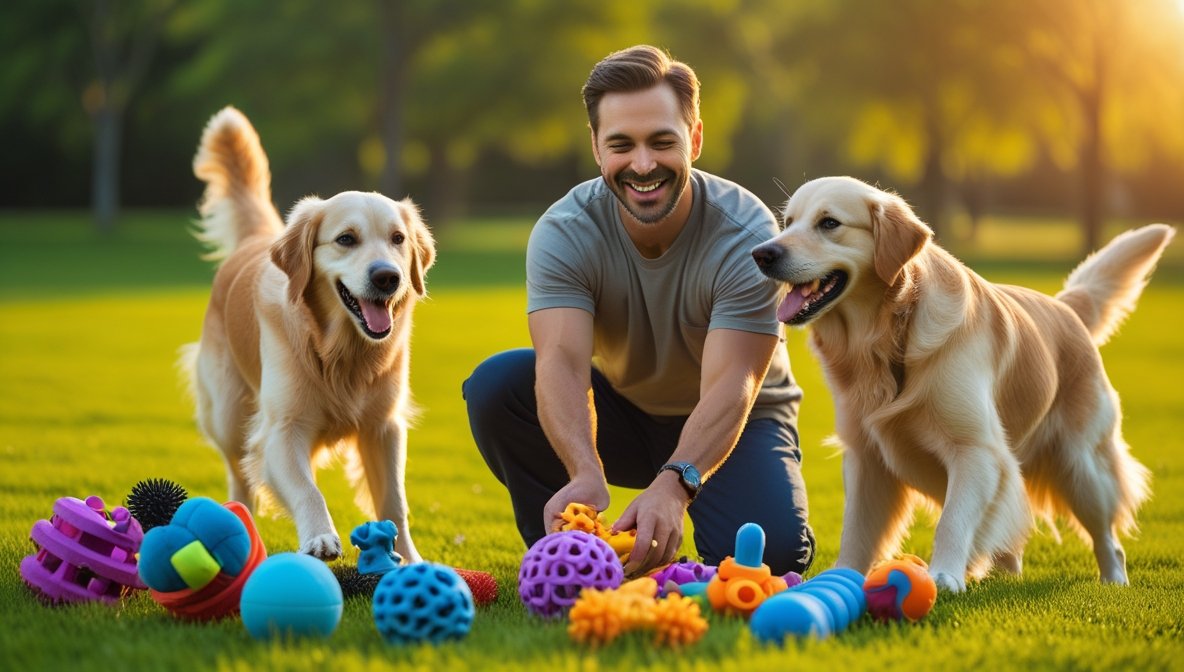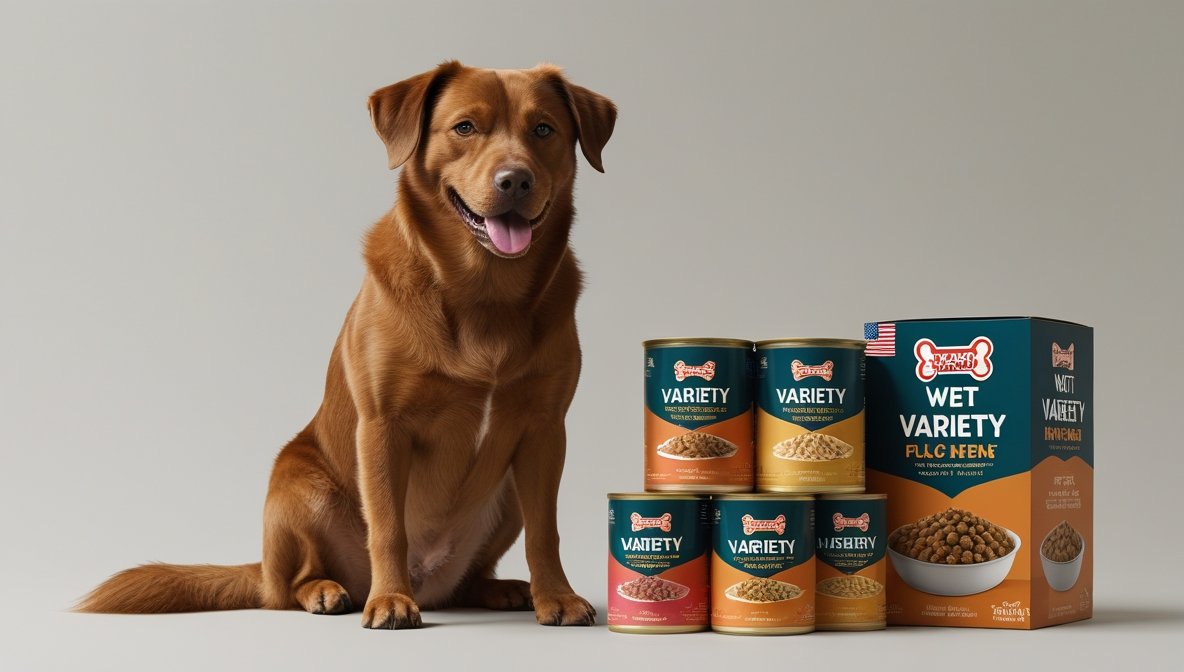Walking your dog in Los Angeles is a joy – but someone has to pick up the waste. Using high-quality, best poop bags for dogs is not only a matter of etiquette but also a legal requirement and an environmental concern. The typical dog produces about three-quarters of a pound of waste per day (around 274 pounds per year). With millions of dogs in the U.S., that adds up to millions of tons of poop annually. In Los Angeles, city law mandates that pet owners promptly clean up after their dogs on public and private property, with fines up to $500 for repeat offenders. Fortunately, the City of Los Angeles even offers a free dog-waste bag program – residents can request a dispenser (about 15 bags) at no cost. By choosing the right dog poop bags, you’ll make clean-up easier, protect neighbors’ health, and help the planet best poop bags for dogs.
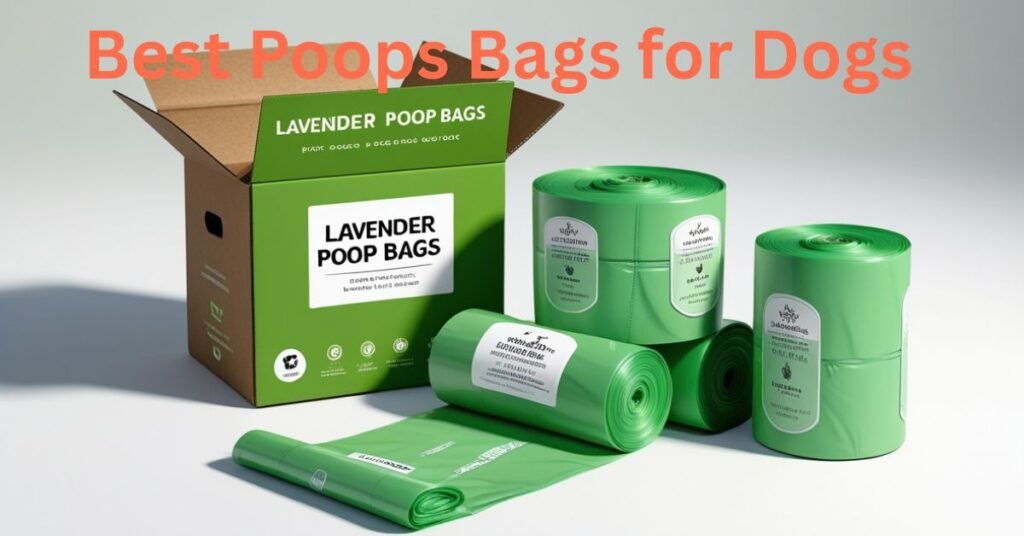
Table of Contents
Why Quality Dog Poop Bags Matter
Picking up after your dog is both polite and important. Uncollected dog waste can carry harmful bacteria and parasites that contaminate water and soil, posing health risks. Moreover, plastic bags can clog landfills and waterways if not handled correctly. The Environmental Protection Agency notes that flushing pet waste (without the bag) is often the best disposal method when available, but in most cases we rely on disposable bags. Thus, choosing the best poop bags for dogs means balancing convenience, strength, and eco-friendliness best poop bags for dogs.
Good poop bags are leakproof and durable so waste never spills or leaks onto your hands or public surfaces. They should also tie securely to contain odor and allow easy disposal. For example, Earth Rated’s standard bags (a top-rated brand) are tested as leakproof and durable enough to handle any size dump. Using reinforced seams and 15-micron thickness, they prevent rips and odors. In fact, testers found Earth Rated’s bags “leakproof and durable…with a 9-by-13 inch size suitable for any size doggie dump,” making them a favorite best poop bags for dogs.
Legal and community responsibility: In California, local laws strictly require owners to clean up immediately after pets. As the City of Los Angeles clarifies, “dog owners must promptly clean up after their dogs on both public and private property”. This helps maintain clean parks and sidewalks. Dog waste left in lawns or trails can harm the environment and neighbors; even pet waste left in private yards can be considered nuisance or trespassing under local ordinances. Carrying sturdy, leakproof bags is a simple habit that prevents fines and keeps communities safe best poop bags for dogs.
Environmental impact: Disposable bags end up in landfills if not collected. Unfortunately, many “biodegradable” or “compostable” bags won’t break down in a landfill’s oxygen-poor conditions. Compostable or biodegradable claims often only hold true under special industrial conditions. A 2019 study even found bags labeled as “biodegradable” largely persisted for 3+ years in air, soil, or water. Los Angeles’s Compostable LA warns that “even if you are using biodegradable bags, they will not decompose in a landfill site”. Thus, for most pet owners, the focus is on reducing plastic use (e.g. recycled-content bags) and preventing waste from entering streams. One tip: consider recycled-content bags (like Earth Rated’s 65% recycled bags) to lessen virgin plastic use best poop bags for dogs.
What to Look For in Dog Poop Bags
When shopping for the best poop bags for dogs, pay attention to these features:
- Size and strength: Most poop bags are about 9×13 inches, which suits dogs of all sizes. If you have a giant breed or clean up after multiple dogs, you might need extra-large, heavy-duty bags (some hold 2+ gallons). Thick plastic or reinforced seams prevent tears on rough ground best poop bags for dogs.
- Material: Common dog poop bags are made of polyethylene plastic (like kitchen trash bags). Some brands use recycled plastic (Earth Rated uses 65% post-consumer recycled), which is more eco-friendly. Others advertise biodegradable/compostable bioplastics (e.g. cornstarch-based). These may break down in industrial compost facilities, but remember they won’t disintegrate in a landfill. Certifications (ASTM D6400, OK Compost) indicate compostability, but still require hot composting conditions. For true sustainability, recycled or compostable biobags are better than conventional plastic, but disposal options are limited best poop bags for dogs.
- Style: Bags come in three styles:
- Rolls: Standard bags on a roll go in a dispenser clipped to your leash. They tear off easily with perforations. Check thickness (micron or mil) – 15+ microns (0.6 mil) is generally strong for small dogs, while 0.8mm or more is ideal for big breeds.
- With handles: Some bags have handles or ties built in (like a grocery bag) so you pick up and then loop them closed. These are convenient to tie off without needing an extra knot, and often come in a box instead of a roll. Pogi’s Earth Friendly bags, for example, feature handles and are sturdy – perfect if ease of tying matters best poop bags for dogs.
- Flushable sheets: A newer option is water-soluble, flushable poop bags made from polyvinyl alcohol (PVA). Brands like Flush Doggy offer bags that dissolve in water, letting you flush waste (EPA even recommends flushing pet waste if possible). If your plumbing and wastewater system allow it, a flushable bag means “no more stinky garbage” in the trash. Just be sure to remove waste from any conventional bag before flushing it, and always follow local sewer guidelines best poop bags for dogs.
- Odor control: Some bags are scented (lavender, cucumber, etc.) or include baking soda (Arm & Hammer uses activated baking soda) to neutralize odor. If your dog has smelly dumps or you often carry bags for a while, a lightly scented bag can help. Earth Rated even offers a lavender-scented version (though testers found it strong). Scented bags aren’t necessary if you tie tightly, but they can make walks more pleasant best poop bags for dogs.
- Dispensers and accessories: Many poop bag packs come with a plastic dispenser and clip. A dispenser keeps rolls dry and easy to tear. If you already have one, you might skip buying a new one. Also look for coreless rolls (no cardboard center) to reduce waste, and consider bag holders that clip to a leash for convenience best poop bags for dogs.
In summary, the best poop bag for you depends on your dog’s size, your values (eco vs. convenience), and your budget. A small dog could do fine with basic recycled 9×13 rolls, while a husky owner may want heavy-duty XL or handle-equipped bags. Consider pairing your bags with a sturdy bag dispenser or leash pouch for quick access.
Top Rated Poop Bags for Dogs: Reviews & Picks
Based on expert reviews and user testing, here are some top-rated dog poop bags across different categories. We’ve highlighted why each made the list, drawing on real-world testing and specifications best poop bags for dogs.
- Earth Rated Poop Bags (Best Overall): These 9″×13″ bags are leakproof and durable. They’re made with 65% post-consumer recycled plastic and tested at 15 microns thickness, so they hold up well on walks. Testers loved that Earth Rated bags tear easily from the roll and are opaque enough to hide the contents. A lavender-scented version masks odors (though it’s fairly strong). The main downside is they can be a bit hard to open if you’re wearing gloves. Overall, Earth Rated’s blend of strength, eco-credentials, and pack sizes (60–900 bags) made them our pick for “Best Overall” best poop bags for dogs.
- Unni 100% Compostable Bags (Best Compostable): Unni’s bags are 9″×13″ and made from corn-based bioplastic (no petroleum). Reviewers found them soft yet very sturdy – as thick (0.8 mm) as many plastic bags. They consistently tear cleanly and feel tougher than thinner bags. Critically, Unni bags meet ASTM D6400 and OK Compost Home standards, meaning they will fully biodegrade in compost. This is rare: most compostable bags need industrial heat, but Unni will break down at home over time. Downsides: if stored too long (a year+), Unni bags may start to stick together, so avoid hoarding huge bulk. These bags are more expensive than plain plastic, but for eco-conscious owners they’re a top choice best poop bags for dogs.
- AmazonBasics Dog Poop Bags (Best Bulk/Value): For budget-oriented buyers, Amazon’s house-brand poop bags offer huge volume at low cost. Available in packs of 300, 600, or 900 (the 900-bag bulk even includes coreless rolls and a dispenser). These are standard 9″×13″ polyethylene bags – no recycled content and no frills – but they’re surprisingly reliable. In tests they handled large loads without tearing. They also come unscented or in light scents (mango, cucumber, lavender). The main issues are cosmetic: seams can be imperfect, and you might waste the included dispenser if you already have one. If you want the most bags per dollar, this is a go-to option best poop bags for dogs.
- Pogi’s Earth Friendly Poop Bags (Best with Handles): These bags come without a roll; instead, they’re stacked in a box. Each bag has two sturdy handles for easy opening and secure knotting. Reviewers noted they’re big enough for large dogs and made from recyclable plastic. Opening them is a breeze, and tying is foolproof with the handles. You cannot use these with a leash-mounted dispenser, but they’re great if you keep a box at home and maybe loop one on the leash before walks. Pogi’s also offers a compostable version with handles (ASTM certified), though the standard is plastic best poop bags for dogs.
- Arm & Hammer Waste Bags (Best Scented): These 9″×13″ bags are on the thick side and infused with baking soda for odor control. Testers praised the pleasant fresh scent (not overpowering) and noted these were the best at hiding poop smell. The plastic is strong and tear-resistant, though slightly see-through. They come with easy ties after pick-up. One complaint: the bags stick to the roll a bit and can be tricky to separate when you’re in a hurry. If your walks get stinky, the Arm & Hammer bags are an odor-fighter best poop bags for dogs.
- GoGo Stik Heavy Dootie Bags (Best for Big Dogs): When only the largest will do, GoGo Stik delivers. Each bag holds over 2 gallons of waste and is extra-large and thick. They have handles for opening and tying, similar to Pogi’s, but in a mammoth size. Ideal for big breeds (Great Danes, Huskies, etc.) or picking up after multiple pets. These come in a recyclable cardboard dispenser box (dispenses one at a time like tissues). You can’t use a leash roll with them, but if you have space to tote the box, they’ll handle any “oversized doody” best poop bags for dogs.
- Wild One Poop Bags (Best Premium): Wild One’s blush-colored bags are a premium option. Made from a corn-starch blend plastic, they’re thick, very strong, and designed to biodegrade with the waste. Reviewers found them soft to the touch but puncture-resistant and easy to tear off the roll. They’re unscented and come with a packet of “poop-pourri” deodorizer. Each roll works in standard dispensers. These bags are pricey, but they offer a high-end feel: they hold up on concrete and don’t rip even under sharp debris. If cost is no object, they make clean-up almost enjoyable best poop bags for dogs.
- Greener Walker Poop Bags (Sustainable Bulk): If you want an eco-friendly bulk deal, Greener Walker bags are 9″×13″ and made of recycled polyethylene mixed with cornstarch. Sold in packs of 36 rolls (540 bags), they’re unscented and fit standard dispensers. Testers reported they open and separate easily, but the plastic is rather thin. So handle with care – they can puncture if dragged on sharp edges. Still, for pet owners wanting more recycled content and many bags for the price, these are worth a look best poop bags for dogs.
Honorable mentions: Other brands like Earth Rated’s compostable line, PoopBags (various brands), or LOOSE BAGS FOR travel exist, but the above represent the top tested and best-reviewed options as of 2025.
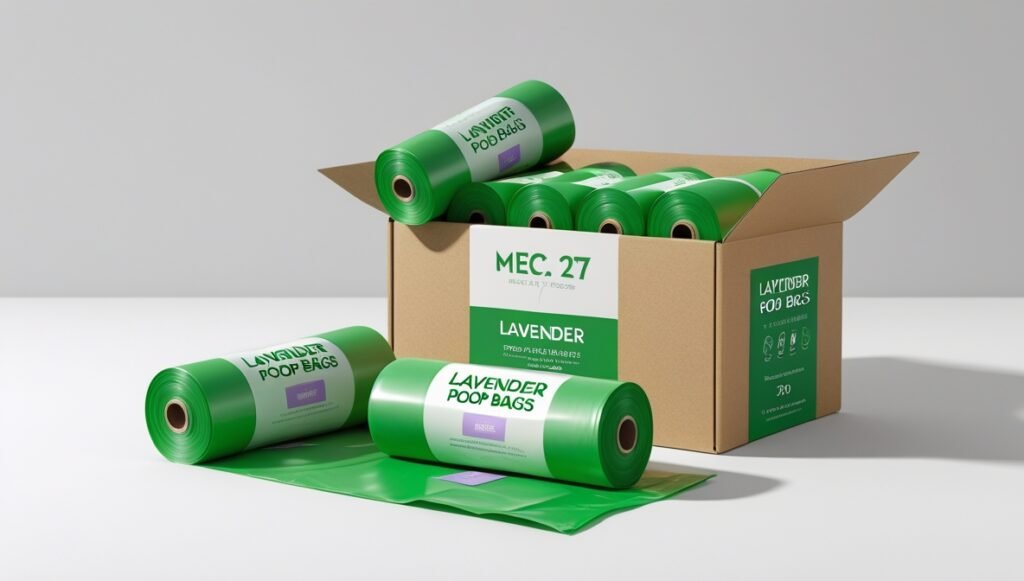
Buying Tips
- Compare unit prices: While a pack of 900 bags seems expensive, the cost per bag can be under $0.05 – an affordable expense given the convenience best poop bags for dogs.
- Look for bundled deals: Buying multi-roll boxes often lowers price per bag.
- Check bundle features: Some kits include a dispenser and clip; others just refills. Reusing a sturdy dispenser can save money.
- Read reviews: Real user feedback (like on Amazon or Chewy) often notes issues like weak perforations or scent strength. Brands like Earth Rated and Unni have many thousands of positive reviews online best poop bags for dogs.
- Buy when needed: Remember that some compostable bags (e.g. Unni) degrade over time even in packaging, so don’t buy an excessive bulk if you won’t use them quickly best poop bags for dogs.
Affordable Dog Poop Bags: Budget Picks
You don’t need to spend a lot to stay responsible. Here are a few budget-friendly choices:
- AmazonBasics Bulk Pack: As mentioned, their 600-900 count bags give very low cost per bag.
- Walmart/Walgreens store brands: Many big retailers have generic pet aisle bags that are similar to AmazonBasics in quality (both strong and cheap) best poop bags for dogs.
- Buy refill-only: If you own a dispenser, skip packs that include one. Refills alone can be cheaper per bag.
- Sign up for subscriptions: Services like Amazon’s “Subscribe & Save” or Chewy Autoship can save 5–10% and ensure you never run out best poop bags for dogs.
- Local programs: Remember that in Los Angeles you can get a starter canister for free. Keep an eye on community events too – sometimes rescues or parks give away sample bags to promote clean-up best poop bags for dogs.
Even on a budget, avoid ultra-thin or small bags. The few extra cents for a thicker or larger bag is worth it to avoid messes. And if you buy affordably, it’s even easier to “buy now” multiple packs so you always have one in the car, leash, and home best poop bags for dogs.
Alternative Ways to Dispose of Dog Waste
Besides standard poop bags, there are some alternatives and best practices:
- Flushable bags: As the EPA notes, flushing dog waste (without the plastic) is an effective way to prevent land and water pollution. Brands like Flush Doggy offer water-soluble bags: pick up poop in a bag, then toss the entire bag in the toilet. These PVA-based bags dissolve completely in water. This method cuts plastic waste entirely. However, check local rules – not all sewage systems allow pet waste. If you flush, always remove the waste from a regular plastic bag first, and confirm your wastewater treatment can handle it best poop bags for dogs.
- Home composting: With proper precautions (separate composter, high heat, enzyme additives), you can compost pet waste in your yard. LA’s CompostableLA cautions that pet compost requires vigilance to kill pathogens. If you’re committed (and have room), a buried pet waste digester can turn poop into safe leachate. There are DIY tutorials and systems (septic-tank-style digesters) for this. This truly avoids landfills, but is more work than bags best poop bags for dogs.
- Burial: In some jurisdictions, burying your dog’s waste in your yard is allowed (check local codes). Bury it 6–12 inches deep and at least 200 feet from water sources. Avoid public park rules (often forbid burying).
- Waste stations: Many parks in LA have dog waste stations with free dispensers and trash bins (see image above). These dispensers often provide compostable or recycled bags. While strolling, use these if you forgot your own bags – but be mindful not to take too many best poop bags for dogs.
- Cat litter: Do not use cat litter for dogs – dog waste in cat litter should never be flushed or composted due to pathogens.
- Training alternatives: Some owners try to train dogs to go in a specific spot and cover it, but this is unreliable and generally discouraged by vets because of health concerns best poop bags for dogs.
Other Useful Dog Products (and Bark Collars)
While poop bags are our focus, responsible pet ownership includes other tools. For example, high-performance dog bark collars are a popular training aid for nuisance barking. A high-quality bark collar uses humane cues (citronella spray, vibration, or very low shock) to interrupt excessive barking. In one study, a citronella-spray collar completely eliminated or significantly reduced barking in some dogs. Modern collars allow adjustable sensitivity and multiple modes. If barking is an issue, look for trainer-recommended collars that feature safety shutoffs and gentle stimuli. The key is to pair any collar with positive reinforcement and vet guidance.
FAQs
Q: Which poop bags are truly biodegradable?
A: Beware of claims. Most “biodegradable” bags will not decompose in a normal landfill environment. Only bags certified under strict standards (ASTM D6400/D6868 in the US) will biodegrade under industrial compost conditions. Even then, if they end up in trash they’ll persist like plastic. Compostable corn-based bags (like Unni or others) can break down in a hot compost pile, but again they require the right conditions. If you want eco-friendly, focus on bioplastic bags (home-compostable) or recycled-content bags, and try to ensure waste ends up in proper composting or sewage, not just buried plastic.
Q: Can I flush dog poop bags in the toilet?
A: Only if the bags are specifically flushable/water-soluble. Regular plastic or bioplastic bags will clog plumbing. Products like Flush Doggy make polyvinyl alcohol bags designed to dissolve in water. According to the EPA, flushing pet waste (without a bag) is ideal when possible. So with a true flushable bag, you can scoop and flush. Without that, stick to throwing bags in the trash (or your home composter if suited). Always follow local sewer guidelines – some areas discourage pet waste in sewage despite EPA recommendations.
Q: How should I tie up dog poop bags?
A: The easiest method is to treat the bag like a glove: put one hand inside, scoop the poop, then pull the edges around with your other hand. Twist the excess plastic at the top, and loop a simple knot as with a garbage bag. Many bags have guides printed on them or easy-tear handles to help. If the bag has integrated handles, just tie the two handles together to seal it. The goal is a snug knot so nothing leaks or falls out during disposal.
Q: Where can I get poop bags in Los Angeles?
A: Most pet stores and big-box retailers (PetSmart, Petco, Walmart) carry many brands of poop bags. Online retailers (Amazon, Chewy) offer wide selections and bulk deals. Locally, the City of Los Angeles will mail residents a free bag dispenser with about 15 bags upon request. Additionally, many LA parks and dog runs have dispensers (often with biodegradable bags) for public use. You can also occasionally find donations of free bags at adoption events or city clean-up days.
Q: What about alternatives to single-use bags?
A: Beyond composting or flushing (see above), there are pooper-scooper devices that can pick up waste without a bag, which you then deposit in trash. These tools often look like tiny rakes or tongs. They’re effective if you absolutely want to avoid bags, but you’ll still need to empty them carefully. In general, most experts recommend at least using biodegradable bags or recycled plastic bags rather than no bags, to protect sanitation workers and wildlife from direct exposure.
Q: Are scented poop bags safe for my dog?
A: Yes – the scents (lavender, cucumber, etc.) or baking soda additives are meant to neutralize odor after scooping. They have minimal direct contact with the dog. Just ensure your dog isn’t allergic to the fragrance (unusual) and don’t let your dog chew on the bags. Scented bags simply make the clean-up more pleasant for humans.
Q: How many bags do I need per walk?
A: Always bring at least one bag per dog per outing. For certainty, carry a couple extra in case of multiple pickups or dropped bags. If you’re in an area with free dispensers (like some LA parks) you might top up there, but don’t count on it. Bulk-buying (see “Top Picks” above) ensures you always have backups at home, in the car, and on the leash.
Conclusion
Keeping Los Angeles streets and parks clean starts with each dog owner doing their part. By using the best poop bags for dogs, you can make every walk hassle-free and hygienic. Top-rated options like Earth Rated, Unni, or Arm & Hammer offer proven durability and features. Budget-minded owners have value options like AmazonBasics (bulk bags). For a truly eco-friendly approach, consider compostable bioplastic bags (as long as you dispose of them correctly). Don’t forget: Los Angeles law expects you to bag it, and even provides free bag dispensers.
Ready to upgrade your dog-walking routine? Check out the recommended poop bags above – many retailers allow you to buy now in packs with free shipping. Feel free to share this guide with fellow dog owners, and leave a comment below if you have a favorite poop bag brand or tip! Your feedback helps the community pick up smarter (and cleaner).
Sources: Authoritative product reviews and city resources have been used to compile this guide. For detailed testing results, see The Spruce Pets’ latest dog poop bags roundup (2024) and Los Angeles municipal guidelines. Each recommendation above is backed by expert reviews and real-world testing.

